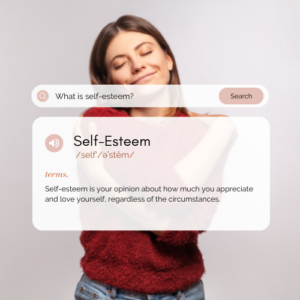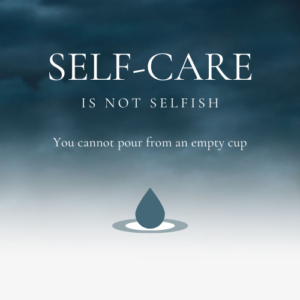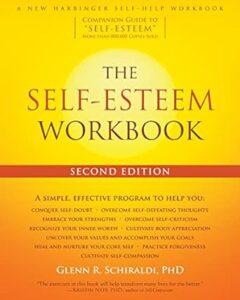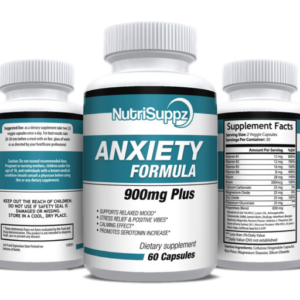27 Aug Improve Self-Esteem and Overcome Anxiety: A Path to Greater Confidence
Improve Self-Esteem and Overcome Anxiety: A Path to Greater Confidence

Introduction – Improve Self-Esteem and Overcome Anxiety
Self-esteem and anxiety are deeply intertwined, often feeding off each other in a cycle that can be difficult to break. When self-esteem is low, anxiety tends to rise, leading to feelings of inadequacy, fear, and self-doubt. However, by focusing on improving self-esteem, you can significantly reduce anxiety and build a more confident, balanced life. This article explores practical strategies to help you boost your self-esteem and, in turn, alleviate anxiety.
Understanding the Connection Between Self-Esteem and Anxiety
To address the relationship between self-esteem and anxiety, it’s essential to understand how these two aspects of mental health interact. Self-esteem refers to the way we perceive our own worth. When self-esteem is low, it can manifest as self-criticism, doubt, and a lack of confidence. Anxiety often thrives in these conditions, amplifying feelings of fear and insecurity. By improving self-esteem, you can create a foundation for reducing anxiety, as a stronger sense of self-worth helps diminish the power of anxious thoughts.
Identify and Challenge Negative Self-Talk
Negative self-talk is one of the biggest contributors to low self-esteem and anxiety. This internal dialogue often includes thoughts like “I’m not good enough,” “I always mess up,” or “People won’t like me.” To break free from this harmful pattern, it’s important to first become aware of these thoughts. Once you recognize them, challenge their validity. Ask yourself if there is real evidence to support these beliefs or if they are simply distorted perceptions. By reframing negative thoughts into more balanced, positive ones, you can start to change the narrative in your mind and improve your self-esteem.
Set Realistic and Achievable Goals
Setting goals is a powerful way to build self-esteem. When you achieve a goal, no matter how small, it reinforces your belief in your abilities and reduces anxiety. Start by setting realistic and achievable goals that align with your values and interests. Focus on progress rather than perfection, and celebrate each accomplishment. As you continue to meet your goals, your confidence will grow, and your anxiety will lessen. Remember, the key is to set goals that are meaningful to you, rather than trying to meet external expectations.
Practice Self-Compassion
Self-compassion is the practice of treating yourself with the same kindness and understanding that you would offer to a friend. It involves recognizing that everyone makes mistakes and experiences setbacks, and that these moments do not define your worth. By practicing self-compassion, you can reduce the harsh self-criticism that often fuels anxiety and low self-esteem. When you encounter challenges, instead of berating yourself, offer words of encouragement and support. Over time, this shift in mindset can lead to a healthier relationship with yourself and a more resilient approach to life’s difficulties.

Build Positive Relationships
The people you surround yourself with can have a significant impact on your self-esteem and anxiety levels. Positive relationships provide support, encouragement, and validation, which can help boost your self-esteem. Seek out relationships with individuals who uplift you and make you feel valued. Conversely, distance yourself from those who consistently bring negativity into your life. By building a supportive network, you create an environment where your self-esteem can flourish, and your anxiety can diminish.
Take Care of Your Physical Health
Physical health is closely linked to mental well-being. Regular exercise, a balanced diet, and adequate sleep are all essential components of a healthy lifestyle that can improve self-esteem and reduce anxiety. Exercise, in particular, has been shown to increase endorphins, which are natural mood boosters. When you take care of your body, you send a message to yourself that you are worthy of care and attention. This self-care practice not only enhances your physical health but also reinforces your sense of self-worth, leading to lower anxiety levels.

Engage in Activities That Bring You Joy
Engaging in activities that you enjoy and excel at is a great way to boost self-esteem. Whether it’s a hobby, a sport, or a creative pursuit, doing something you love allows you to connect with your strengths and passions. This positive engagement helps counteract feelings of anxiety by shifting your focus away from worries and towards activities that bring fulfillment and satisfaction. Make time for these activities regularly, and allow yourself to fully immerse in the experience. Over time, this practice can lead to a stronger sense of identity and increased self-esteem.
Seek Professional Support When Needed
Improving self-esteem and managing anxiety can be challenging, especially if these issues have been long-standing. Seeking professional support from a therapist or counselor can provide valuable guidance and tools to help you on your journey. Cognitive-behavioral therapy (CBT), in particular, has been shown to be effective in addressing both low self-esteem and anxiety. A professional can help you explore the underlying causes of these issues and develop personalized strategies for overcoming them.
Conclusion
Improving self-esteem is a powerful way to reduce anxiety and enhance your overall quality of life. By challenging negative self-talk, setting achievable goals, practicing self-compassion, and building positive relationships, you can create a strong foundation for self-worth. Taking care of your physical health and engaging in activities that bring you joy further reinforce this foundation. Remember, seeking professional support is always an option if you need additional help. As you work towards building a healthier sense of self, you’ll find that anxiety loses its grip, and you can move forward with greater confidence and peace.



No Comments